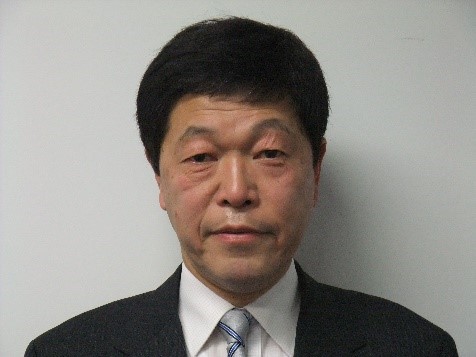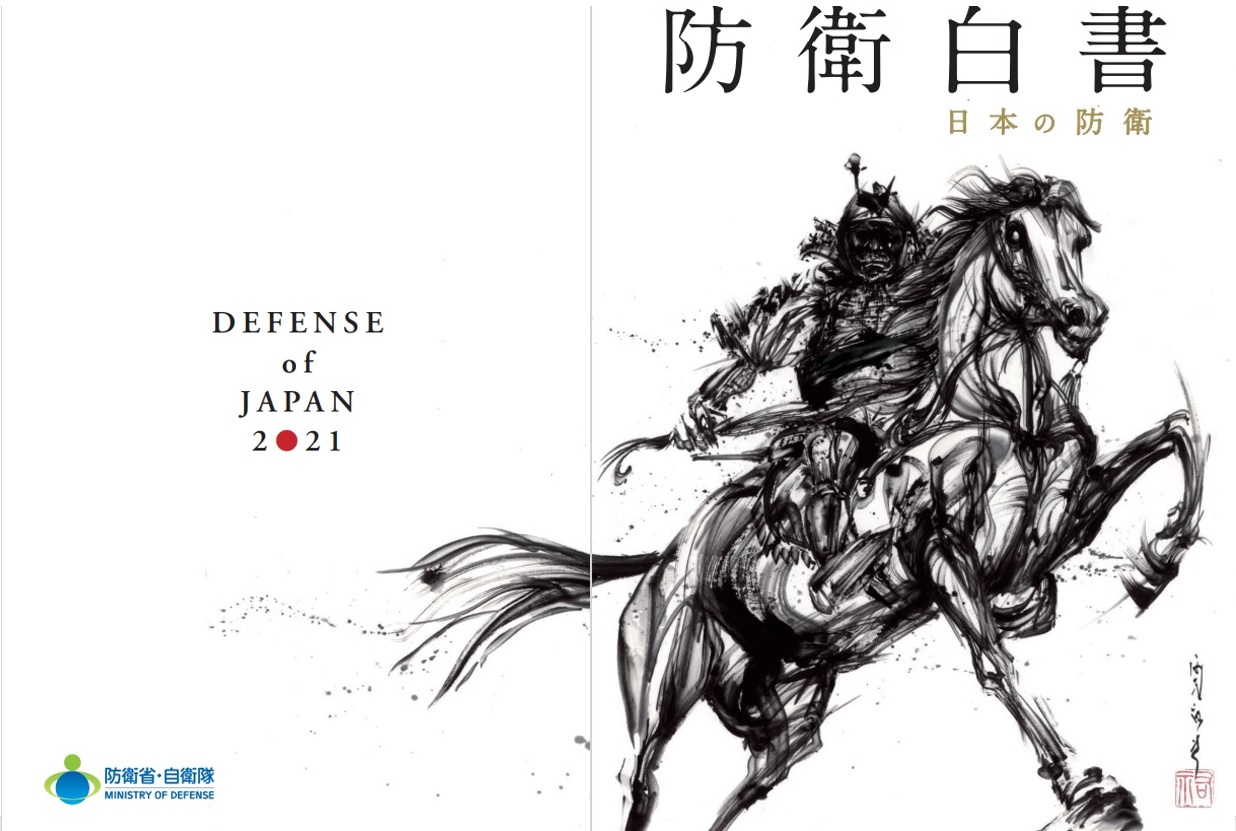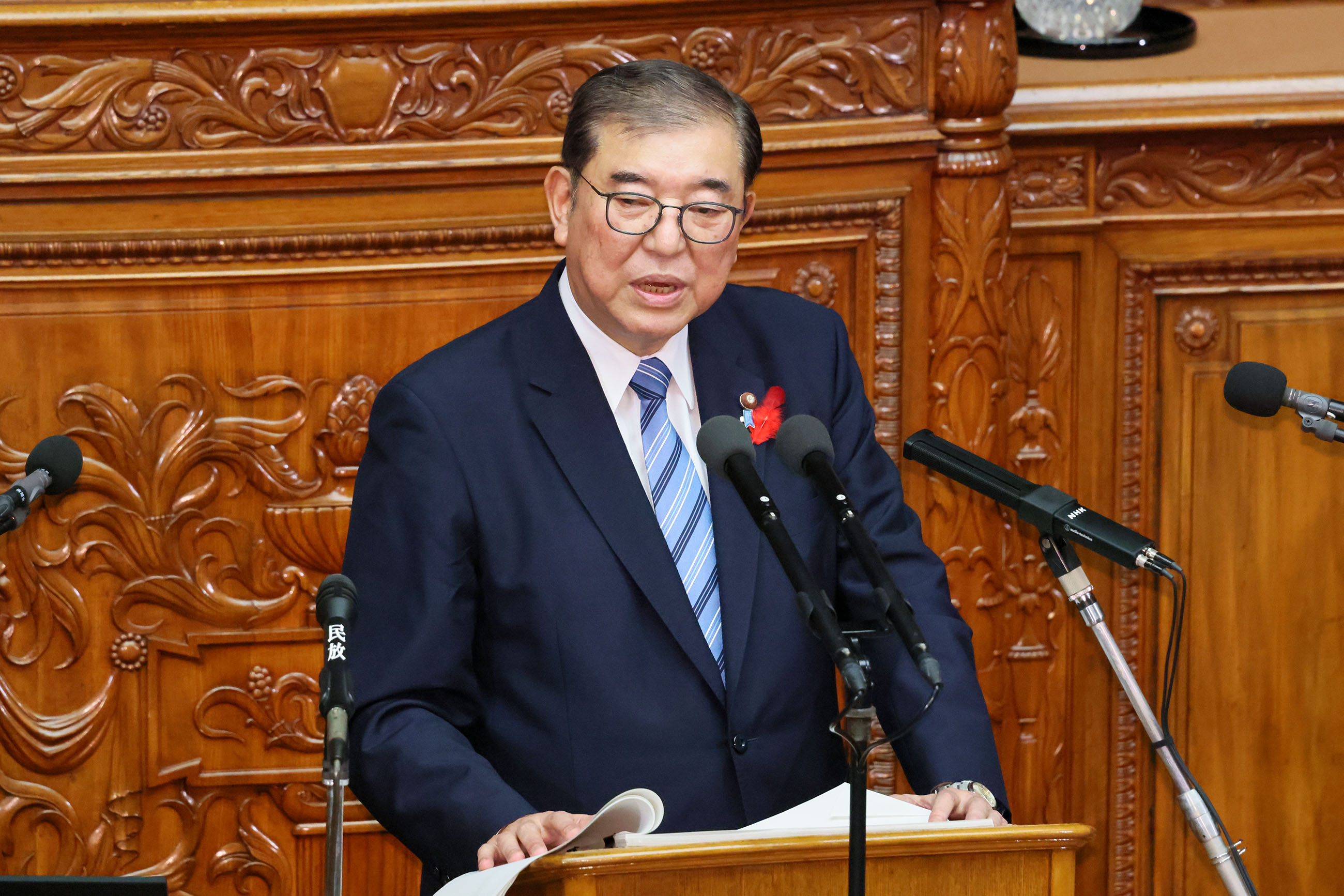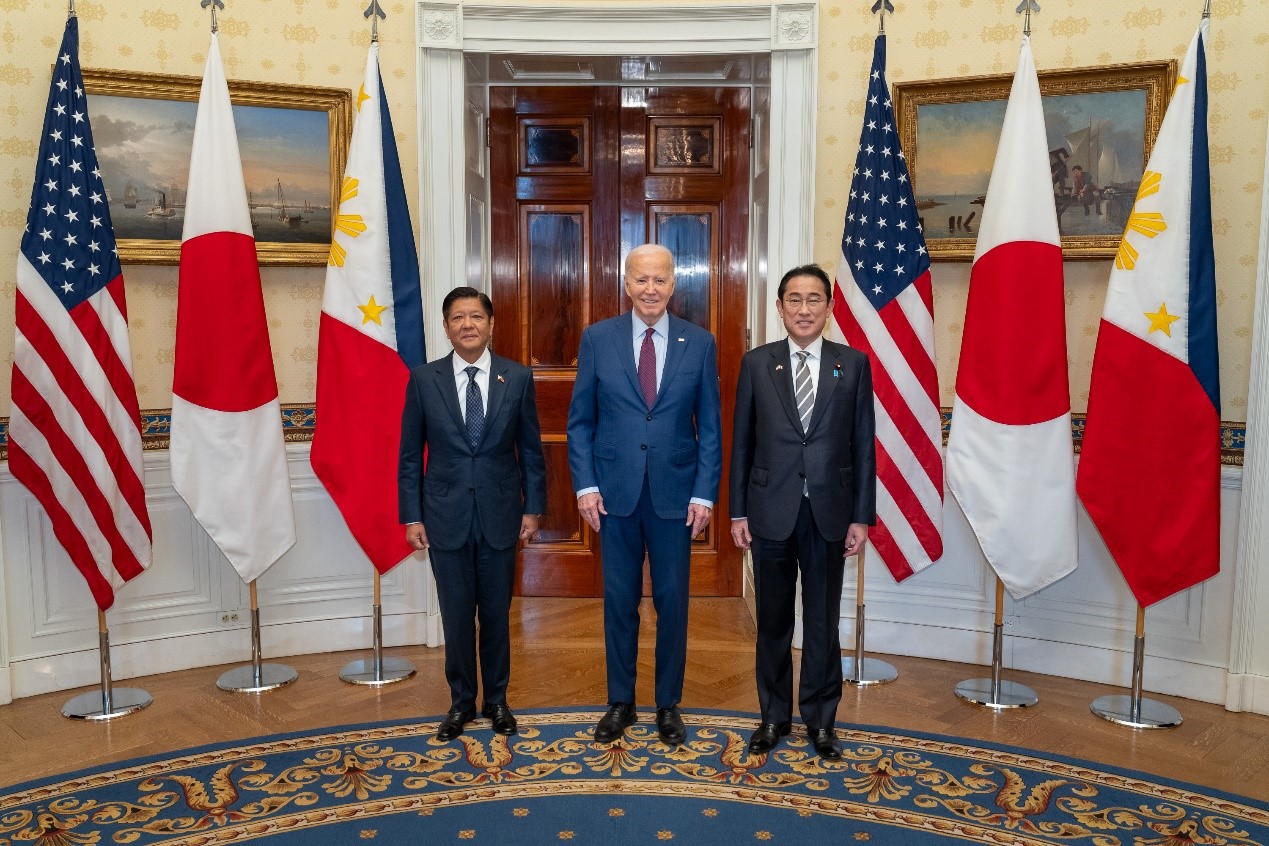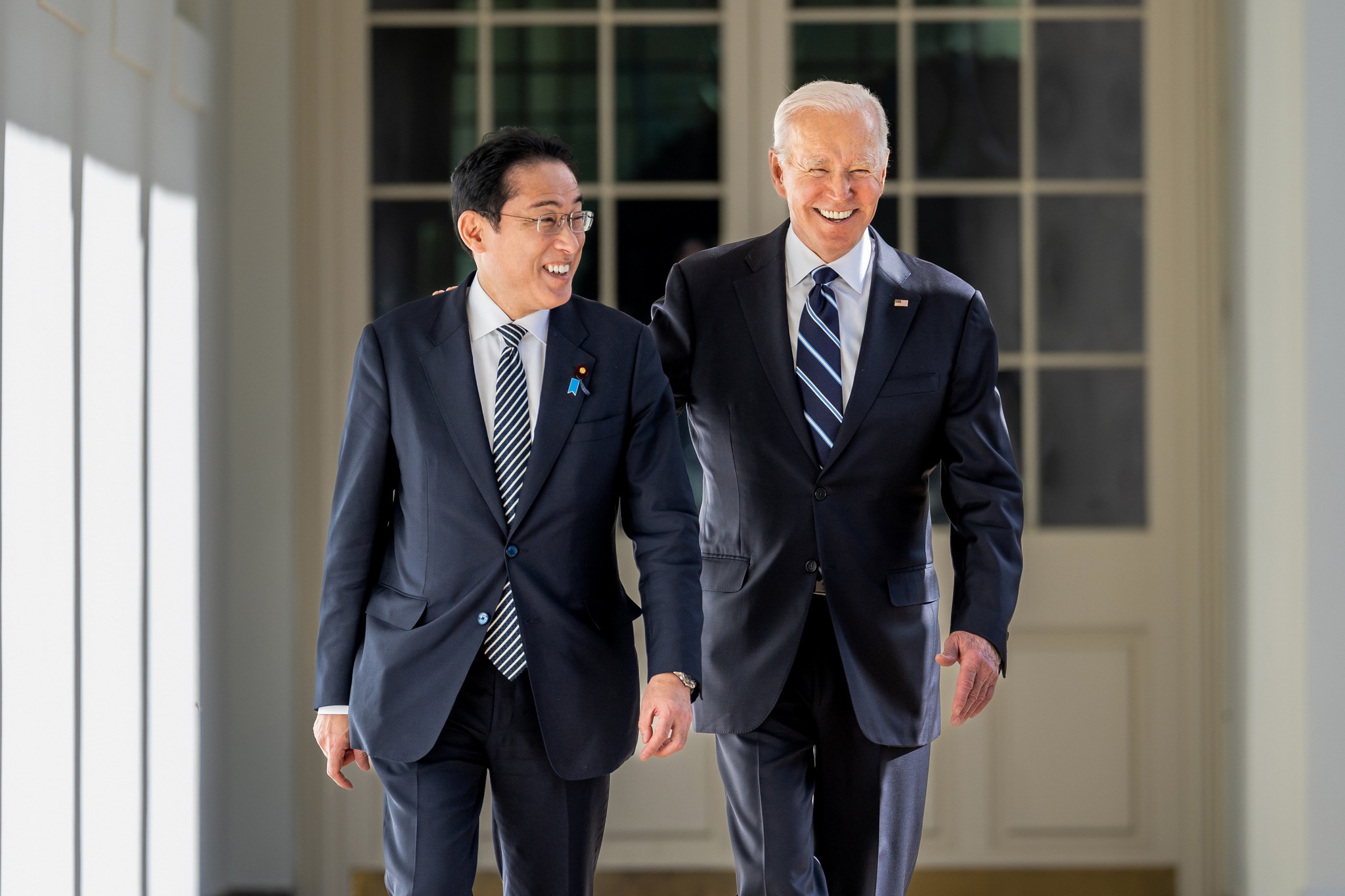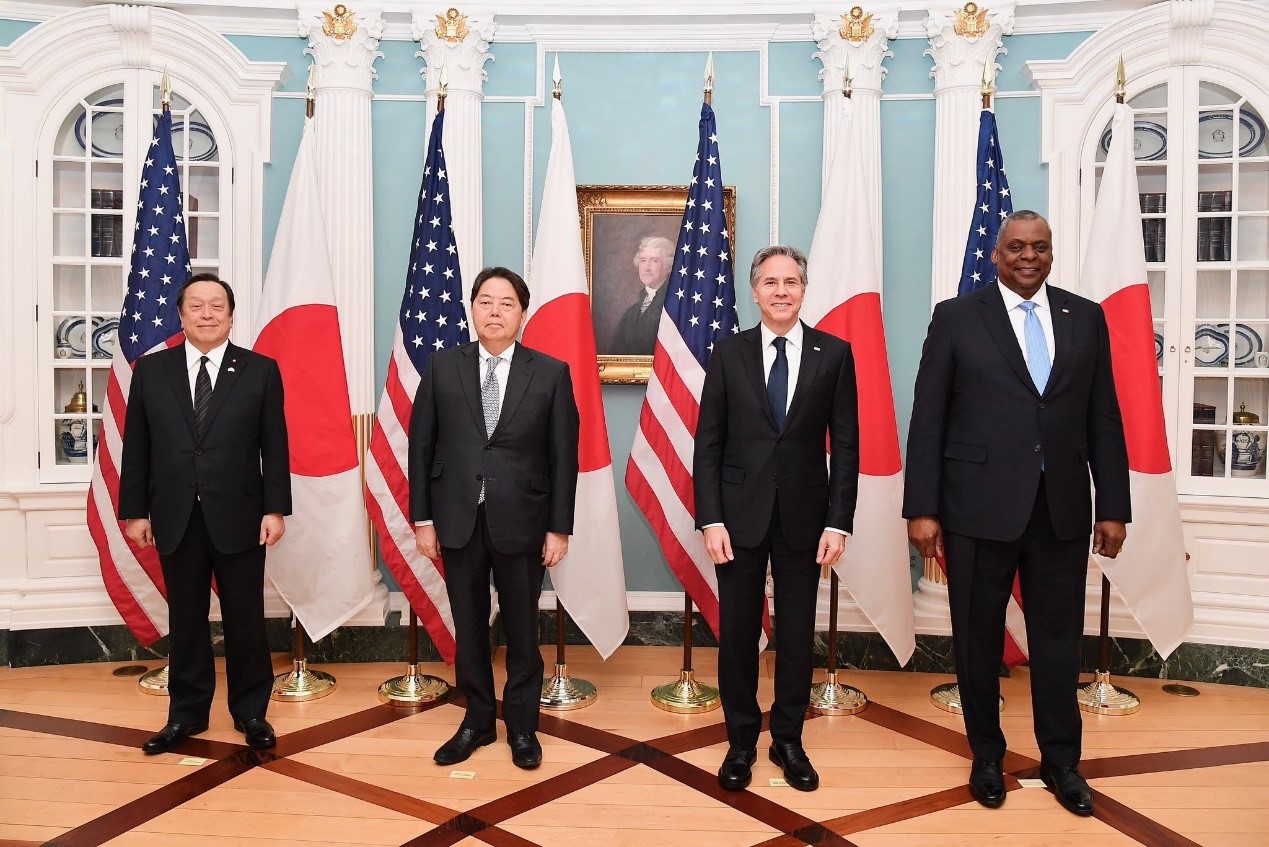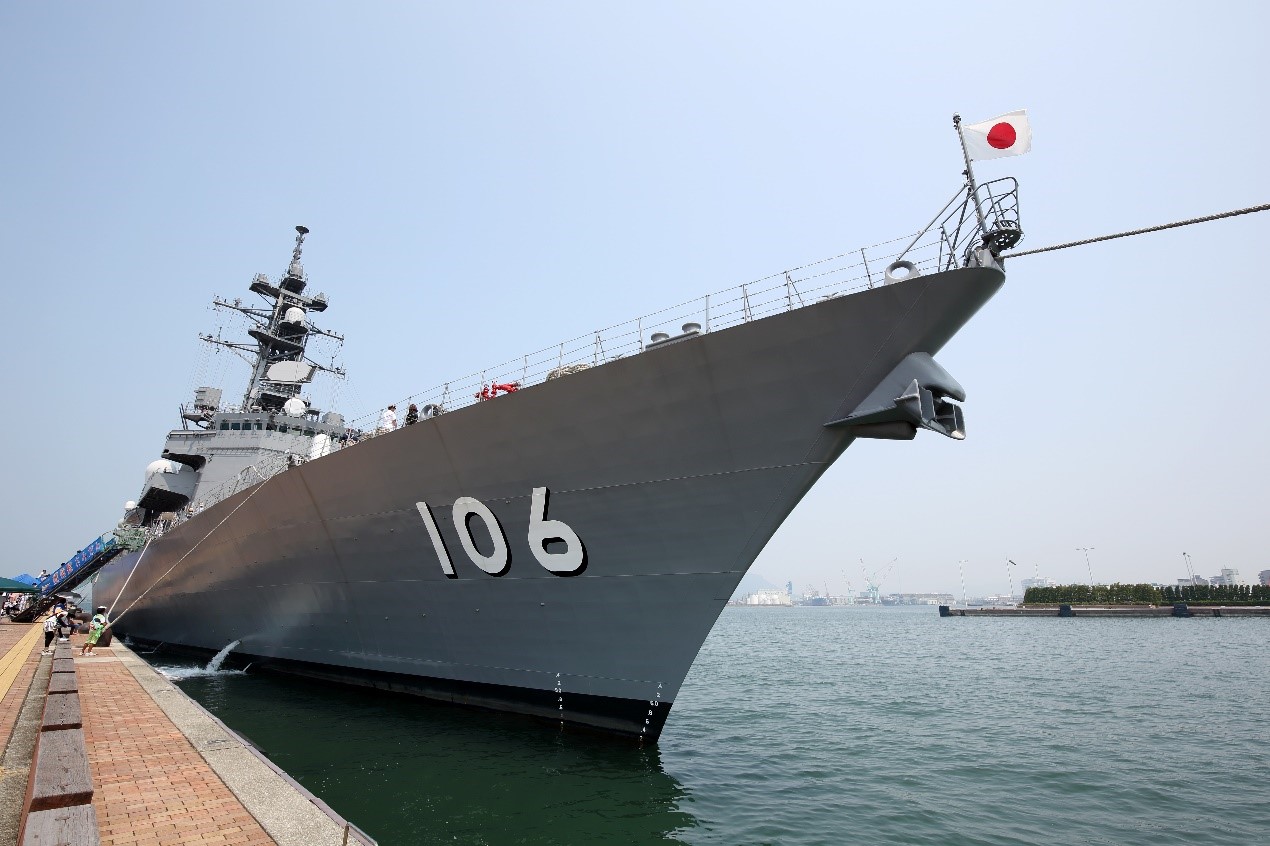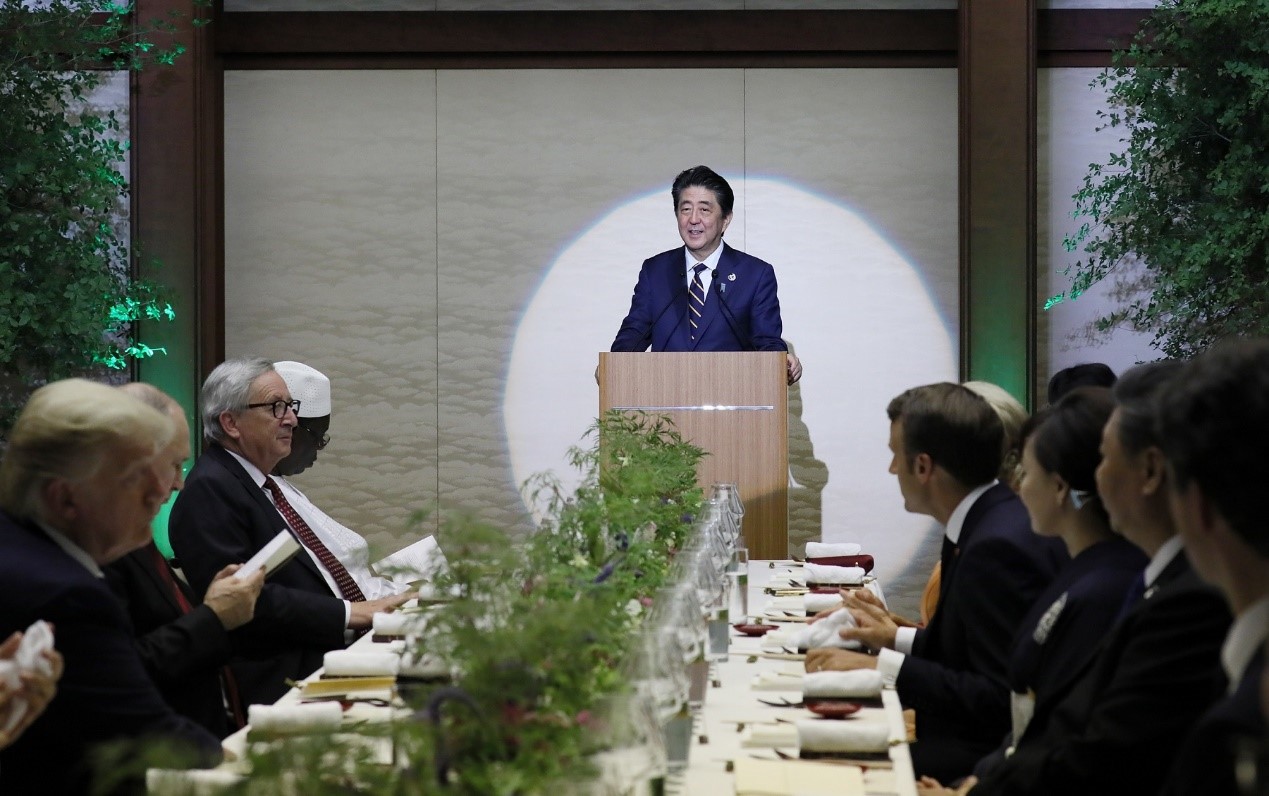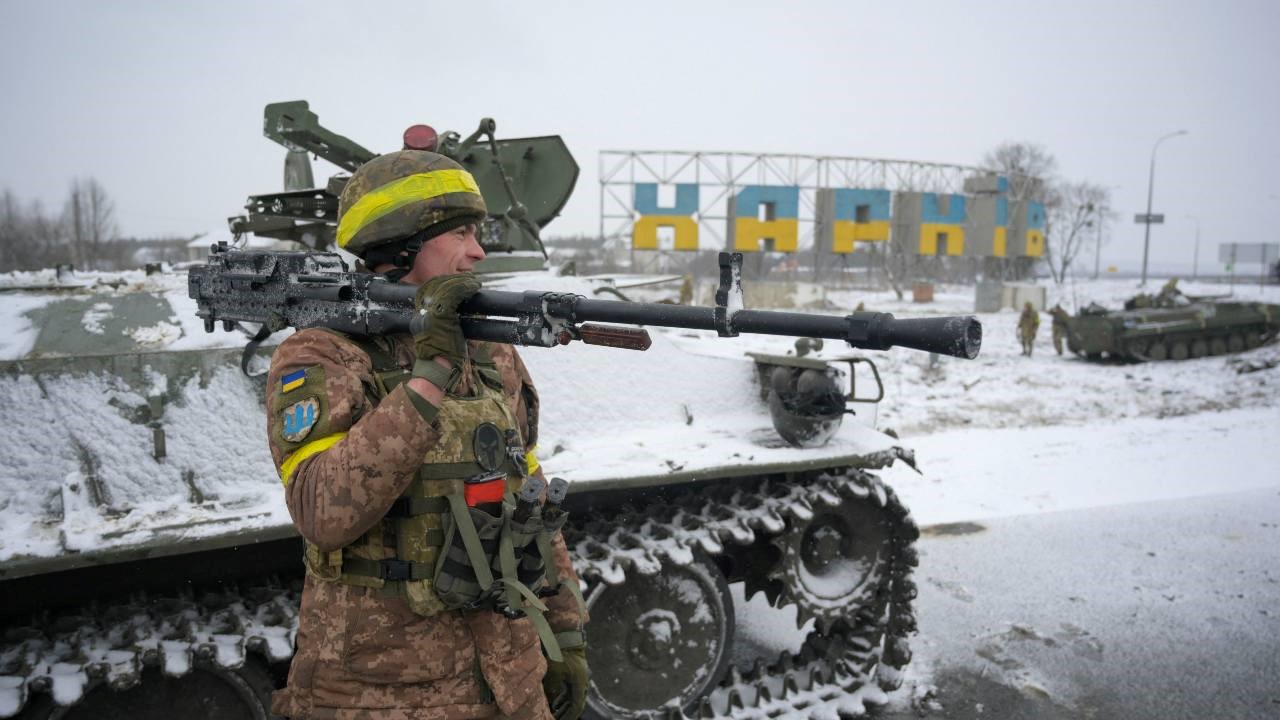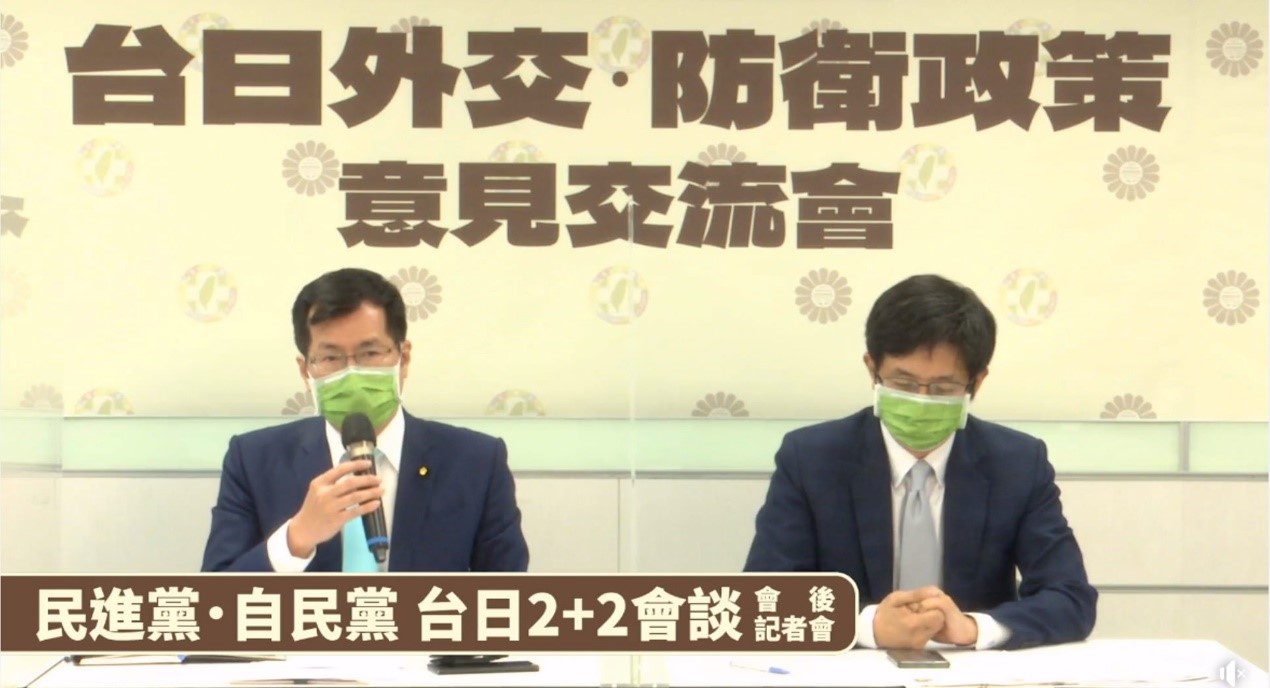Will Japan Fight in a Taiwan Contingency? An Analysis of the 2021 Defense White Paper of Japan
Taiwan is a focal point of international security today. A number of international documents issued this year, including the U.S.-Japan Joint Leaders’ Statement, the U.S.-ROK Leaders’ Joint Statement, the Joint Statement of the EU-Japan Summit, the Carbis Bay G7 Summit Communiqué and Statement of the EU-U.S. Summit refer to peace and stability across the Taiwan Strait.
Picture source: 日本防衛省, August 2021, 《防衛省˙自衛隊》, https://www.mod.go.jp/j/publication/wp/
Prospects & Perspectives 2021 No. 42
Will Japan Fight in a Taiwan Contingency? An Analysis of the 2021 Defense White Paper of Japan
By Hideshi Tokuchi
August 2021
Forward
Taiwan is a focal point of international security today. A number of international documents issued this year, including the U.S.-Japan Joint Leaders’ Statement, the U.S.-ROK Leaders’ Joint Statement, the Joint Statement of the EU-Japan Summit, the Carbis Bay G7 Summit Communiqué and Statement of the EU-U.S. Summit refer to peace and stability across the Taiwan Strait.
Chinese President Xi Jinping’s declaration in his speech on the Chinese Communist Party’s (CCP) centennial anniversary that “Resolving the Taiwan question and realizing China’s complete reunification is a historic mission and an unshakable commitment of the Communist Party of China” reflects a simple fact: the security and prosperity of Taiwan as a full-fledged democracy is critically important in the systemic rivalry between the U.S. and China.
In the context of the Japan-U.S. Alliance, it is one of the common strategic objectives for the two countries to encourage the peaceful resolution of issues concerning the Taiwan Strait through dialogue, as in the Joint Statement of the U.S.-Japan 2+2 ministerial in 2005.
Taiwan is Japan’s best friend in the region. The Japanese never forget Taiwan generously extended its helping hands when a devastating earthquake and tsunami hit Japan in 2011. They have close economic relations. As both Japan and Taiwan are part of the first island chain, their strategic importance in the face of Chinese maritime expansion is obvious.
A natural question is whether Japan would spring into action in a possible Taiwan contingency. Is there a clue to the answer in the 2021 Defense White Paper of Japan?
The 2021 Defense White Paper of Japan
Japan’s Defense White Paper is an annual publication mainly for public relations purposes, not a proclamation of a new defense policy. The major point of the 2021 edition is the updated assessment of the international security environment.
Chinese military affairs has been the main theme of analysis in recent years, and this year U.S.-China relations are highlighted, including the situation involving Taiwan. The new section on U.S.-China relations can be summarized as follows:
a. U.S.-China competition is becoming more prominent across the political, economic and military realms. As China rapidly enhances its military power, changes in the U.S.-China military balance could affect the peace and stability of the Indo-Pacific.
b. China has intensified its military activity around Taiwan. The U.S. has demonstrated a clear stance of supporting Taiwan in military aspects. Stabilizing the situation surrounding Taiwan is important for Japan’s security and the stability of the international community. It is necessary to pay closer attention to the situation with a sense of crisis. The overall military balance between China and Taiwan is tilting to China’s favor, and the gap appears to be growing year by year.
The passage “Stabilizing the situation surrounding Taiwan is important for Japan’s security and the stability of the international community” is notable for the following three reasons:
First, it is a new expression that cannot be found in past Defense White Papers, although back in 1969, Eisaku Sato, the then prime minister of Japan, had said in a Japan-U.S. Joint Statement that the maintenance of peace and security in the Taiwan area was a most important factor for the security of Japan, and that the term “Far East” in the Japan-U.S. Security Treaty covers Taiwan.
Second, the White Paper uses the term “Taiwan” while all the international documents mentioned above use the term “the Taiwan Strait.” Possibly one should not over-read the difference, but the White Paper seems more candid about the recognition of the importance of Taiwan.
Third, while the White Paper highlights Taiwan, it remains silent about why stability of the situation surrounding Taiwan is important for Japan and how Japan should and can contribute to that stability. These questions should not be unanswered.
Security Implications of Taiwan for Japan
Japan’s Deputy Prime Minister Taro Aso commented in his speech a few days before the release of the White Paper, “If a major problem took place in Taiwan, it would not be too much to say that it could relate to a survival-threatening situation.” “Survival-threatening situation” is a Japanese legal term to trigger Japan’s exercise of the right of collective self-defense to protect its friends under armed attack. Chief Cabinet Secretary Katsunobu Kato, the government spokesman, declined to comment on Aso’s speech, but reiterated Japan’s official policy, saying, “Japan hopes the Taiwan issue will be resolved through dialogue.” Given the fact that Aso himself avoided making a clear statement in the press conference the next day, saying instead that it was not possible to say whether any particular situation would qualify as a survival-threatening situation, Professor Shin Kawashima analyzes that the Japanese government has not changed or amended its policy with regard to its response to a Taiwan emergency.
While the utmost importance of peaceful settlement is undeniable, questions remain about the necessity to prepare for the worst.
The editorials of all major newspapers in Japan referred to the White Paper’s focus on Taiwan. The Nikkei commented, “The recognition that stabilizing the situation surrounding Taiwan is important for Japan’s security is appropriate. Taiwan, where economic development and democracy have been realized, is a center of the semiconductor industry and has strategic importance in the sea lanes. It is also close to the Senkaku Islands and linked with Japanese interests.”
The Senkaku Islands and Yonaguni Island are so close to Taiwan that Japan would be inevitably affected by military contingencies involving Taiwan. The U.S. would respond using military bases and civilian airports and seaports in Japan. In addition, Japan would have to help more than 20,000 Japanese nationals in Taiwan evacuate.
An opinion poll in April indicates that 74% of the Japanese are in favor of Japan’s engagement with matters pertaining to the stability of the Taiwan Strait. Japanese willingness to support Taiwan’s security is increasing, but it is unclear whether this is translating into willingness to do so militarily.
However, as they cannot change geography, they will have to prepare. The Japanese defense forces may or may not engage in the fighting, but preparation to defend Japan will be inevitable because Taiwan contingencies could easily develop into Japan contingencies. Even if Japan does not exercise the right of collective self-defense, Japan’s logistics support to U.S. military operations will be inevitable. Strong resolve to support U.S. military operations is a necessity, and detailed planning for that support is also essential. Given the close economic relations with China, it will require Japan to make hard decisions, but short-term economic benefits should not hinder national security interests. Japan must regard the security of Taiwan as its own security issue.
(Professor Hideshi Tokuchi is President of Research Institute for Peace and Security (RIPS) in Tokyo and a former Vice-Minister of Defense of Japan for International Affairs.)

